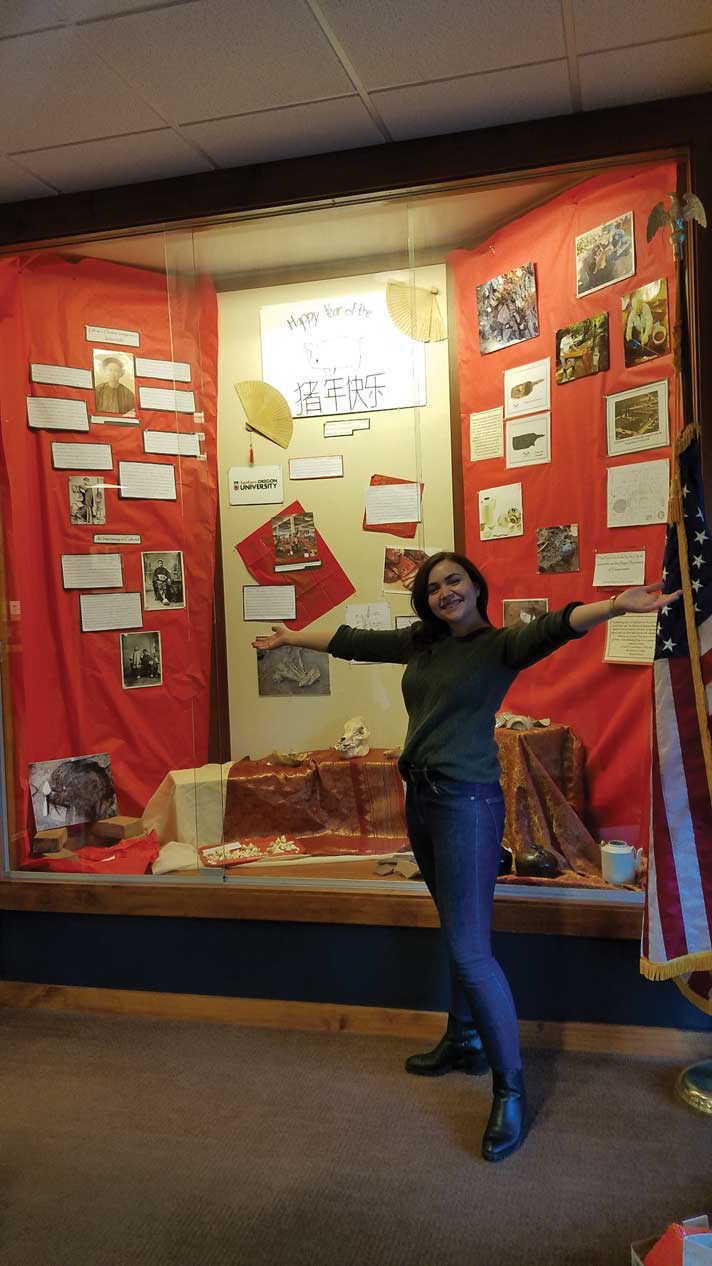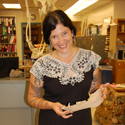Digging Jacksonville – March 2019
The Southern Oregon Laboratory of Anthropology (SOULA) is celebrating the Year of the Pig by revisiting some of the archaeological findings made at their 2013 dig of the burned dwelling along Main Street in Jacksonville’s Chinese Quarter. Those who have read previous articles may recall the discovery of thousands bones at the excavation site. Among these bones were pig jaws, ribs, and feet—all appropriate subjects for considering Chinese culture in Jacksonville this Lunar New Year.
Pork has been a significant component of the Cantonese diet for thousands of years. Responsible for over half of the world’s pork production and consumption, the Chinese have a deep connection to the pig. As it is considered to be a mild meat, pork can be prepared in a variety of ways depending on the consumer. Oftentimes, however, pig was used sparingly in dishes so as to prolong the supply of pork. Certain meals, including char siu, or Chinese barbecued pork, have made their way into mainstream Chinese-American cuisine. In fact, much of the Chinese food we are familiar with in the United States today is of Cantonese origin, as the Cantonese were the most numerous population of Chinese immigrants in the nineteenth century. Dishes like chow mein, chop suey, sweet and sour pork, and lo mein all have an association with the Cantonese immigrant population. While the availability of ingredients for some traditional dishes would have been limited, the Cantonese adapted their methods of food preparation to their new setting, resulting in a number of dishes that have become staples in the United States today.
Faunal remains provide valuable insight into the daily lives of Chinese immigrants who lived in and around Jacksonville in the nineteenth century. The previously-mentioned jaw bones likely would have been set aside for the extraction of their marrow, a valuable ingredient in cooking broths. In addition to bones, spouted ceramic jars were recovered from the site, which likely would have been used to store soy sauce or vegetable oils. The remnants of a wok and a brick oven complete the image of what a meal could have looked like and how it would have been prepared in the home of a Chinese immigrant in Jacksonville at the end of the nineteenth century.
The consumption of pork was not a practice that solely benefited the Chinese population. Records indicate that the demand for pig increased significantly in and around Jacksonville, fueling the local economy. Along with shaping the market, the Chinese inhabitants ingratiated themselves and their culture into the town. Due to the relatively small population of Jacksonville, the residents in the Chinese neighborhood lived in close contact with their European American neighbors, and the community depended on Chinese Americans for a number of goods and services. For the well-known Beekman family, this included the employment of an immigrant named Yan, who worked for the family as a cook for many years.
Just as we celebrate the Lunar New Year in Jacksonville today, so did residents roughly 150 years ago. The New Year marked a period of rejoicing for the Chinese neighborhood, invoking the comfort of tradition while providing a reprieve from the day-to-day hard work of mining. Celebrations went on for days, and included consuming copious amounts of food and the lighting of firecrackers. A resident who lived near the Chinese neighborhood, Fletcher Linn, wrote that “the few hundred Chinese residents lived up to all the customs and traditions of their native homeland.” Granted, Linn may have been an anomaly, as most European Americans appeared to observe the festivities with trepidation. In the twenty-first century, however, we are able to appreciate the contributions of the Chinese American population to the history of Jacksonville. Not only can we observe, but we can join in the celebration as well.
Sarah Sissum curated the 2019 Chinese New Year exhibit in the Jacksonville Library, and is a third-year student at Southern Oregon University, where she studies History and English Literature in addition to being a member of the Honors College. You can reach SOULA by contacting Chelsea Rose at rosec@sou.edu and follow SOULA on facebook/Southern Oregon University Laboratory of Anthropology.

 Chelsea Rose is an historical archaeologist who specializes in the settlement and development of the American West. Chelsea and the Southern Oregon University Laboratory of Anthropology (SOULA) conduct archaeology across Oregon and have done several projects in Jacksonville. You can reach Chelsea at rosec@sou.edu and follow SOULA on
Chelsea Rose is an historical archaeologist who specializes in the settlement and development of the American West. Chelsea and the Southern Oregon University Laboratory of Anthropology (SOULA) conduct archaeology across Oregon and have done several projects in Jacksonville. You can reach Chelsea at rosec@sou.edu and follow SOULA on